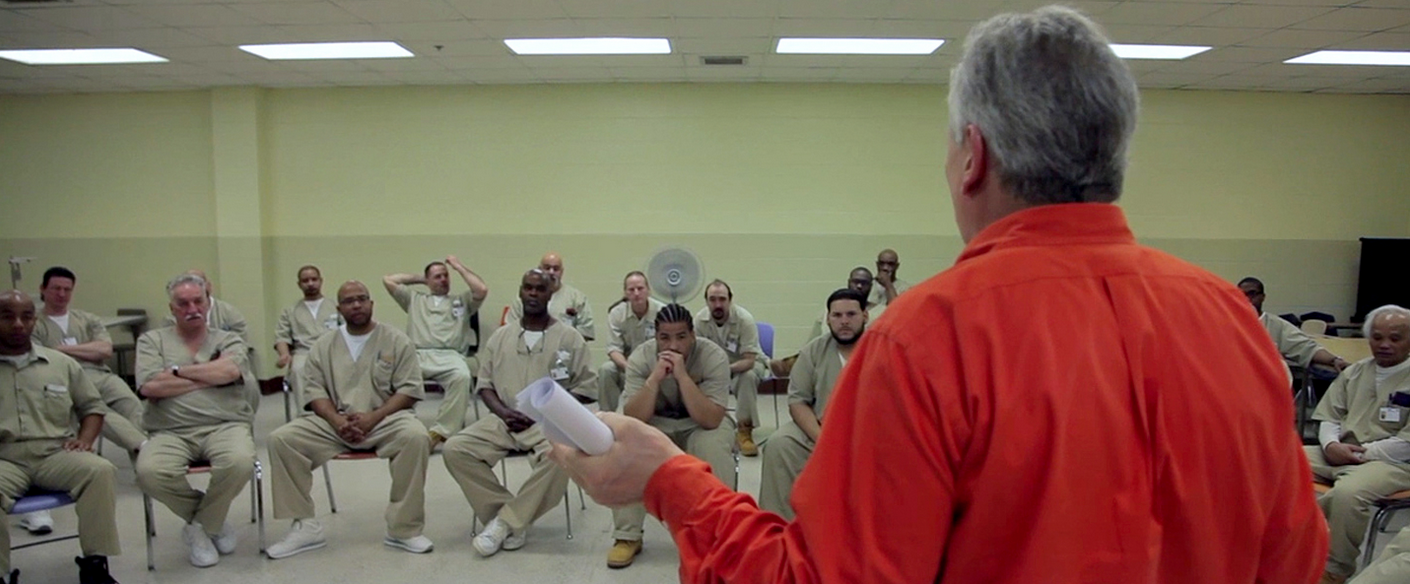Notes on a talk by Michael Stone at Centre of Gravity
Service
I’m here because I find that doing this practice and sharing it with other people and working with other people and listening and talking to other people about how their practice can go deeper both internally and externally, allows me to really appreciate my life and to appreciate all lives. And not just to sit back and appreciate that we’re all alive but also to do something about it.
Dukkha
One of the core teachings of yoga is dukkha, which most people translate as suffering or being unsatisfied or stress. But really the heart of dukkha is the inability to be content and for most of us that means not knowing what nourishes us in a world where so many of us are doing jobs that don’t have a lot of meaning. I think what all of us crave is to feel connected. Connected to ourselves and to others. Somehow even when we have good intentions we can so easily get lost because we’ve become used to living in a way that doesn’t nourish us. Or we are involved in false forms of nourishment where we think we’re being nourished and the image on the outside is that we’re being nourished but really we’re not being nourished. We know this because stress is increasing, along with feelings of loneliness and anxiety, and we experience burn out. The new medical term for burn out is “vital exhaustion,” which I like more. Or we’re out in the world doing good but we’re not taking care of ourselves. Or we’re out in the world doing good and we’ve lost track of what good is, because the world is imperfect and it’s complicated and we think it’s out there. Dukkha is the inability to be content.
Karma
The other core teaching of yoga is karma. Everything we do exists in a matrix of causality. Everything you do has an effect and often you can’t control the consequence of your actions. The only thing you really have control over is the motivation of your actions, your intention, but you cannot control the outcome. I think for a lot of you who are building yoga studios, community centres, working in prisons, or helping others in any way, one of the ways we get exhausted is by being attached to the outcome. In helping work there are three ways we can identify the intention in our actions.
The first is helping, the second is fixing, and the third is serving. When you go into the world and try to help, you see the world as weak. When you help others it usually feels that you have something that you can do for someone that is weak. You’ll help them and then they will overcome whatever form of suffering they’re experiencing, and this is doubly difficult if you’re getting paid for it, if you’re a psychotherapist, if you’re a yoga teacher. If you’re receiving money there’s a kind of pressure that you really need to help people.
The second is fixing. When you try and fix the world you experience the world as broken. There’s an unconscious drive or lens, to see that the world is broken. When we see the world as broken we usually see ourselves as broken. Because how you see the world and how you see yourself is mutually dependent. You can’t separate them.
Serving
When you’re experiencing yourself as whole, the world looks whole, and when you experience yourself as broken you recognize the brokenness in others. When you commit your life to peace making, to making peace in the way you relate to your body, to making peace in your sacrum, to making peace in your family, when you make peace with your lovers and friends and all creatures you’re not helping or fixing, you’re serving. The paradox in dukkha is that when you’re serving, you’re happy. Selfish happiness is an oxymoron. There’s no such thing as selfish happiness. So many of us get caught in these ideas that if I just have this right kind of car, or if my family looked right, I’d be happy. When happiness is about us, what we’re left with is anxiety. There’s a low grade anxiety, because what that kind of happiness creates psychologically is separation from others.
Moksha or liberation or freedom or enlightenment is the ultimate cognitive dissonance. On the one hand you cultivate your own equanimity and happiness, and on the other hand, people are suffering. If you really understand how we’re interconnected, then you can’t be fully free if other people are not free, so you go to work serving others and in serving others you guarantee their freedom, by protecting their awakening, you wake up. Does this make sense? By serving others we feel good. We feel really good. But I want to talk about serving others in the right way, where we’re not helping or fixing. The world is not this broken machine that we need to put back together again, like the way the Americans are rebuilding their economic system using the same model that just failed and caused economic devastation, people losing their homes and jobs and the anxiety that creates when you’re a parent and can’t provide for your kids. One in four American children are on food stamps. One in four.
How to have the confidence that we can really drop down into our bodies and feel our capacity for violence, greed and confusion? To start working at that deep level, this is the intimacy of yoga, to recognize these patterns in ourselves. As we start to work with those patterns we can also see them in the world, in institutions, in our families, so we can work inside and the outside simultaneously.
When Patanjali talks about non-violence he uses the word ahimsa, which most people translate as non-violence or not killing, but what ahimsa really means when we think of it in terms of karma, is not living at the expense of other life. Not living at the expense of other creatures. That means healing the parts of ourselves that we’re exploiting, that we don’t relate to, all the parts in our bodies that aren’t communicating with each other. To go out in our communities and help heal the parts that aren’t communicating with each other. If we’re all connected, and if healing is intimacy, and there is one 15-year-old behind bars, you’re not free. You may feel pleasure, even happiness, but if there is a 15-year-old behind bars that we’re not serving, then we’re not free because our society is not awake enough to work with them, no matter what they’ve done.
To really know samadhi or integration is to understand the conditions of that kid’s life, and know that if you were in those conditions you would have done exactly the same thing. That’s non-separation. And to move on, because we see that this society based on retributive justice that is doing more harm than good. Imagine if we could turn prisons into monasteries, where you go to prison to train your heart. Then the people who come out of prison teach us about the prisons we’re in. Then they become the monks and nuns and teachers in our culture. Why? Because they know about suffering. Because they don’t have a lot of distraction, maybe they can teach us how we can work with our suffering.
Fleet Maull
In the early 1970s the assistant to Trungpa Rinpoche (in Colorado and Halifax) was dealing drugs. He was going down to South America, buying cocaine and bringing it back and selling it in the United States. You can imagine that in the late 60s and early 70s, it was an OK thing to do. Buddhist practice and being a yogi was part of the counter culture. Dealing drugs on the side was like us against them, you can understand it. He was eventually caught. In 1970 they started the kingpin rule in the United States and he was facing prison without parole, his sentence was going to be 25 years. He was a young kid in his 20s.
He went to his teacher Trungpa Rinpoche the night before he went to court. He asked, “What should I do?” Should I go underground in Columbia or South America and just disappear and live a good life? Or should I turn myself in? Can you imagine somebody who is living this kind of life, dealing drugs internationally, he’s not someone who probably asks for advice very much. But on the most important night of his life, he asked.
Trungpa Rinpoche said: turn yourself in, this is your karma. If you turn yourself in, then you and I can have a relationship and you can practice. So that’s what he did, he turned himself in. His name is Fleet Maull. When he got to prison he found that everyone was dying because where did AIDS first show up in North America? In prisons with men where prisoners were dying like flies. He was a Buddhist meditator so he created little hospice corners in the prison, taking care of the dying men. This earned him some respect. He spent 14 years in federal prisons, and while he was there he helped start the National Prison Hospice Association which provides end-of-life care for prisoners in more than 75 prisons in the US and around the world. He also initiated the Prison Dharma Network, which has become a model for providing mindfulness meditation training for prisoners.
“We’re not trying to fix people,” says Maull. “Underneath all the noise of all our conditioning, problems, cross-wiring and stuff from our lives, there’s this innate goodness. We’re helping people get in touch with that and having them begin to experience their own worthiness.”
When he got out of prison he set to work to see how he could go back to help prisoners, offering meditation programs. He came of prison as if he’d come out of a monastery, and he’s been hard at work serving people. This is the kind of thing we could do. Look who is in this room. Imagine what we can do together. To understand that the main cause of dukkha or our inability to be happy is that we’re living lives exhausted by addiction and self centeredness. The cure is not just sitting on the cushion stewing, is not just working your acetabulum so that it’s smooth, it’s also going to work in your neighborhood. To pick battles that are small enough to win and big enough to really matter. And maybe the first battle for some of us, I know that my first battle is just being able to get out of bed in the morning. I started practicing because I was depressed and couldn’t get out of bed. For me the idea of serving was just serving these legs so they could get out of bed. But there is a point when the work on ourselves has to be extended to others. Anyone who says that you can’t take action in the world until you’re enlightened, this is a model of spiritual practice that is outdated, absurd and not helpful. In our culture at a time when people really need us. A monk once asked Basho, “What is your practice?” And he responded, “Whatever is needed.” In this moment, what is needed?

